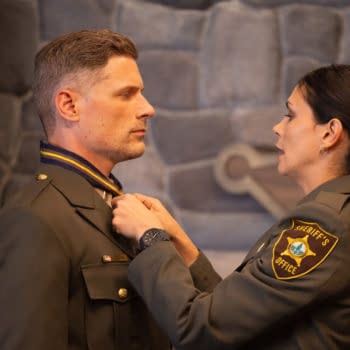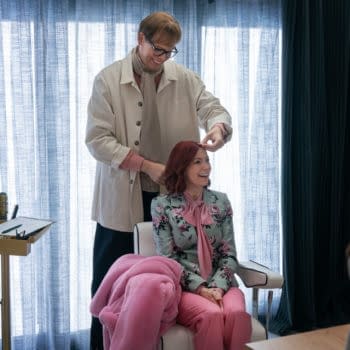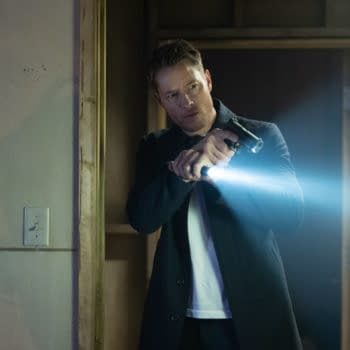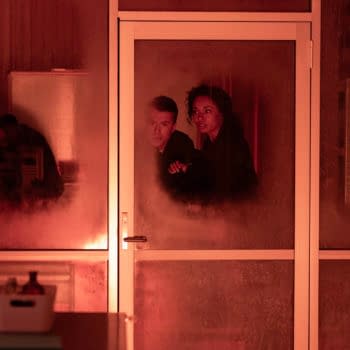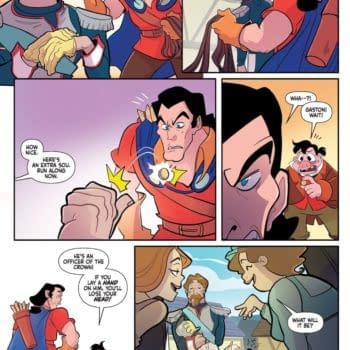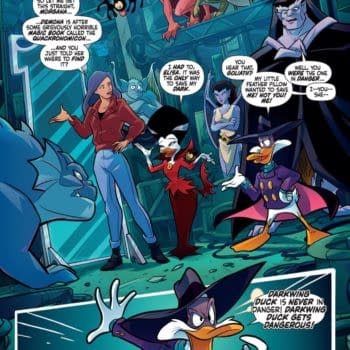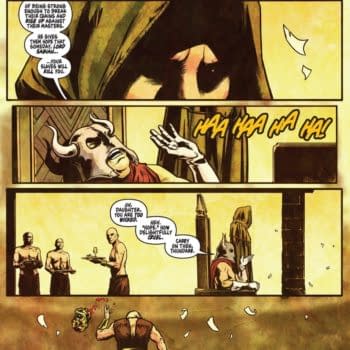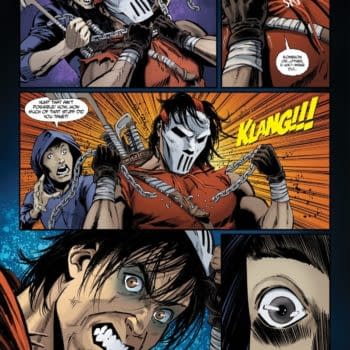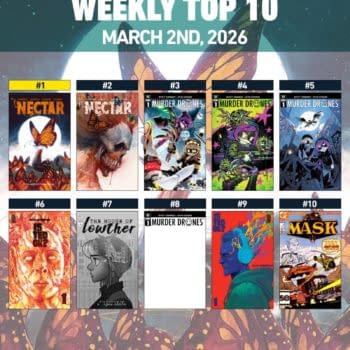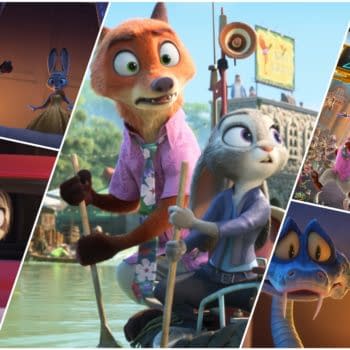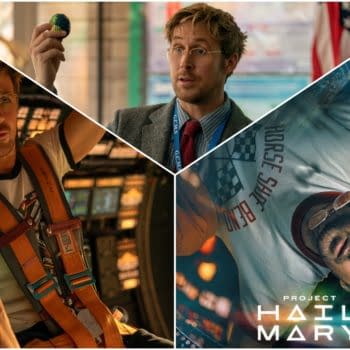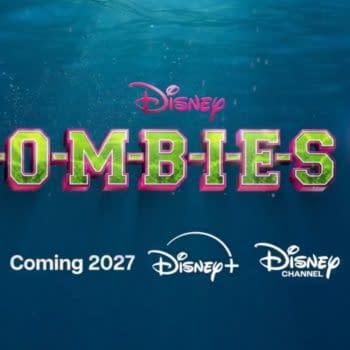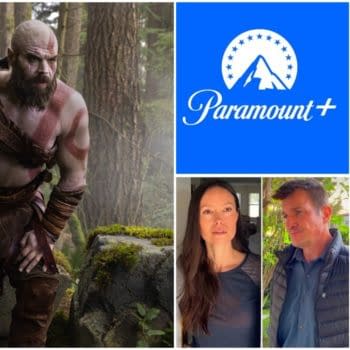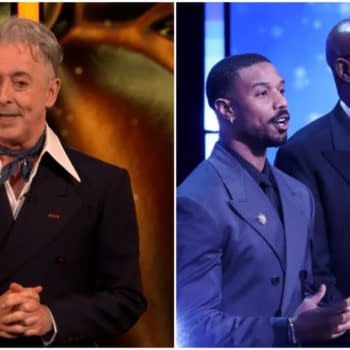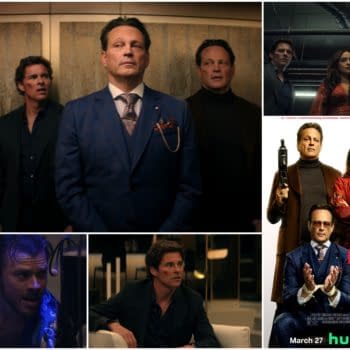Posted in: Amazon Studios, Comics, Movies, Netflix, Opinion, TV, TV | Tagged: eric kripke, joss whedon, opinion, the boys, Watchmen, zack snyder
Is Zack Snyder Going Through His "Joss Whedon Is My Master" Stage?
I had some concerns about Zack Snyder stemming from the #ReleaseThe SnyderCut campaign - and his Joe Rogan interview didn't help matters.
Article Summary
- Zack Snyder's rise and recent Joe Rogan podcast spark concerns about ego.
- The #ReleaseTheSnyderCut movement's impact and fanbase controversy analyzed.
- Snyder credited for deconstructing heroes but overshadowed by past works.
- Fears grow as Snyder's "Rebel Moon" reactions hint at shifting attitudes.
Just to be clear? From 2004 to 2011, Zack Snyder was one of my favorites. Dawn of the Dead… 300… Watchmen… Sucker Punch… that's a pretty impressive track record. As a filmmaker, Snyder brought a unique vision & brand of storytelling to the big screen – a trailblazer with moments of cinematic greatness. But then 2013 happened – and things started to get weird. We had Man of Steel… Batman v Superman: Dawn of Justice… Justice League… and all of the other films that tied into his "Snyderverse" of DC characters like Superman, Batman, Wonder Woman, Aquaman, Cyborg, and others. But those years will probably be remembered more for what went on behind the scenes than on the big screen – especially with Justice League.
Between Snyder and his family suffering a tragic loss, the waves of controversy surrounding what Joss Whedon did when he got his hands on the film, and the studio seen as the "big bad" looking to stifle his creative vision, Snyder was elevated to the status of pop culture prophet and social media messiah by a rabid fanbase that saw him as one of their own – a mistreated fanboy who gave his heart & soul to his vision of a DC cinematic universe.
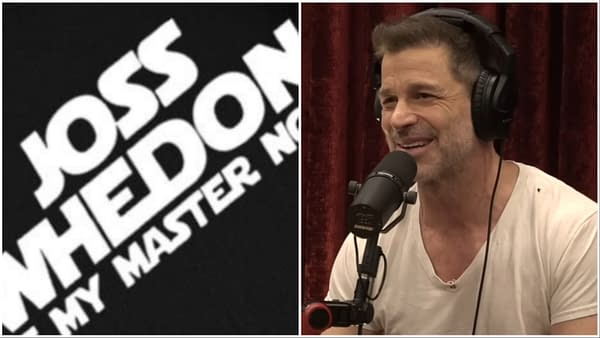
That brought us to the #ReleaseTheSnyderCut campaign, an online effort to convince Warner Bros. to release Snyder's cut of Justice League. And it worked – with the studio announcing in 2020 that the filmmaker would receive an additional $70M to shoot some new scenes and finish visual effects, scoring & editing. The result? 2021's 242-minute-long Zack Snyder's Justice League. But for many, the entire campaign became a ten-ton example of whether or not the ends justify the means. While some saw Snyder's fans as a passionate community committed to helping Snyder see his vision come to life, others saw them as entitled "Snyderbronies" whose efforts continually crossed the line into abuse and harassment – with some even alleging the use of bots to boost the campaign's online presence.
Of course, the answer lies somewhere between because Life is rarely as simple as "A or B," but the toxic portion of the fanbase was loud enough that we felt Snyder should've been more proactive and public when it came to keeping things respectfully in check. Instead, it felt like any acknowledgment of the nasty stuff was always met with a reminder of how many "great fans" are out there and how they get unfairly portrayed – as we saw during Snyder's recent visit with Joe Rogan for the latter's podcast. Because after listening to the episode, my biggest fear felt like it was becoming a reality – Zack Snyder is buying into his own hype. If that's the case, then there's a sad irony in seeing Snyder become the very person who was one of the causes of all of this – Joss Whedon.
Before you start hammering out a "How dare you?!?!" response, let me say that we're talking about Whedon before several allegations against him from those who worked on Buffy the Vampire Slayer, Angel, and other shows came to light. We're talking about that time period when folks would wear "Joss Whedon Is My Jedi Master" and hang on his every word as if it was gospel – no matter what the topic. Those of us in the scientific community call that "star-fuckering" – when we make famous people who are known for one thing feel like they're experts on everything by assigning all that they say or do with a deeper meaning than it deserves. In turn, that famous person sees the positive reaction they're getting and decides they must be right – and then they start a podcast or appear on The Pat McAfee Show. It's like FOX "News" has KISS's Gene Simmons on to discuss the Middle East or something like that.
That brings us to Snyder's one-on-one this week with the fifth funniest cast member on NBC's NewsRadio – and over the course of nearly two hours, it felt like I was listening to someone whose lines between fact and opinion have gotten seriously blurred. From some "interesting" observations regarding Barbie and Rebel Moon to his thoughts on whether or not Batman should kill, a lot of what used to sound like "fanboy exuberance" now comes across like a TED talk or a sermon from the geek mountaintop. But the one part of the interview that stuck with me came at around the 1:19:11 mark. That's when Snyder mentions how he deconstructed heroes on-screen 15 years before others (like Prime Video & Showrunner Eric Kripke's The Boys) with his 2009 feature film take on writer Alan Moore, artist Dave Gibbons & colorist John Higgins' influential DC Comics comic book series Watchmen and how no one had really gone that direction before that.
Okay, a couple of things. First, when it comes to deconstructing superheroes on-screen, Snyder might want to reconsider his opinion after rewatching 1992's Tim Burton-directed, Daniel Waters-written Batman Returns. As for his claim about offering viewers a deconstructed take on superheroes with his Watchmen take, Snyder is technically correct – but in a way, he gets the credit by benefitting from the thematic heavy-lifting that Moore, Gibbons & Higgins accomplished twenty years prior. In fact, his one change from the original story – not dropping the squid – is the one thing that lowers the adaptation from great to very good because it felt like Snyder was confronted with one of the story's greatest challenges – and Snyder punted.
That's what sets Kripke's take on superheroes apart from Snyder's – Kripke was able to take the core thematic elements of the Garth Ennis-written and Darick Robertson-drawn comic book series and add additional layers to the story that works for television while enhancing our understanding of the original source material. In fact, Snyder should take a back seat to HBO & Damon Lindelof's 2019 Watchmen series, which found a way to be a sequel series, spinoff, and retelling of the original story all wrapped up in nine episodes of Emmy-winning goodness. Lindelof even took the chance and dropped the squid – and it worked.
For what it's worth, I hope I'm wrong. Because pop culture in general and geekdom specifically have had their fair share of "golden gods" in the past, and that scenario never ends well for anyone. But based on Snyder's reaction to the less than favorable reviews for his first "Rebel Moon" film for Netflix, the needle on our "cynical optimism" meter is inching closer and closer to "cynical." We'll see…





